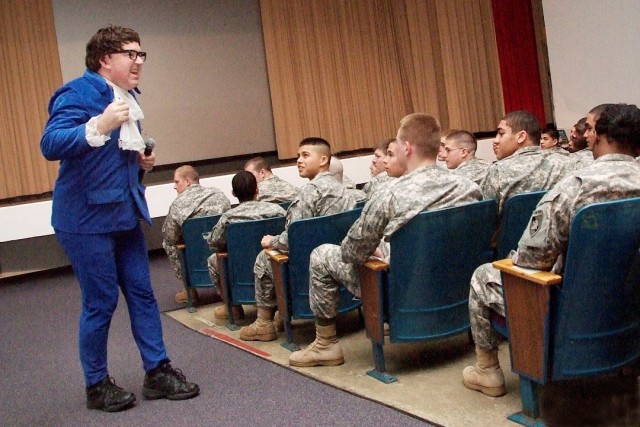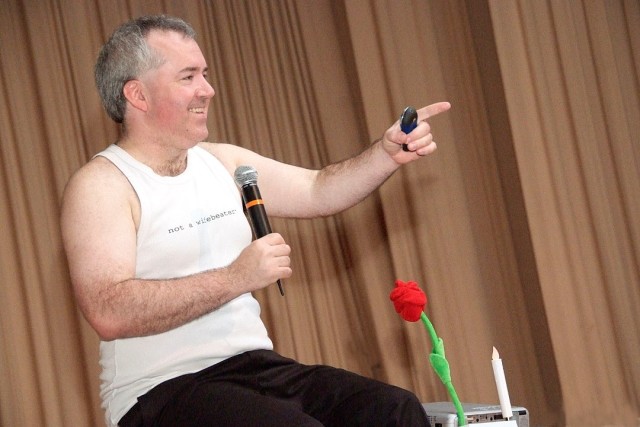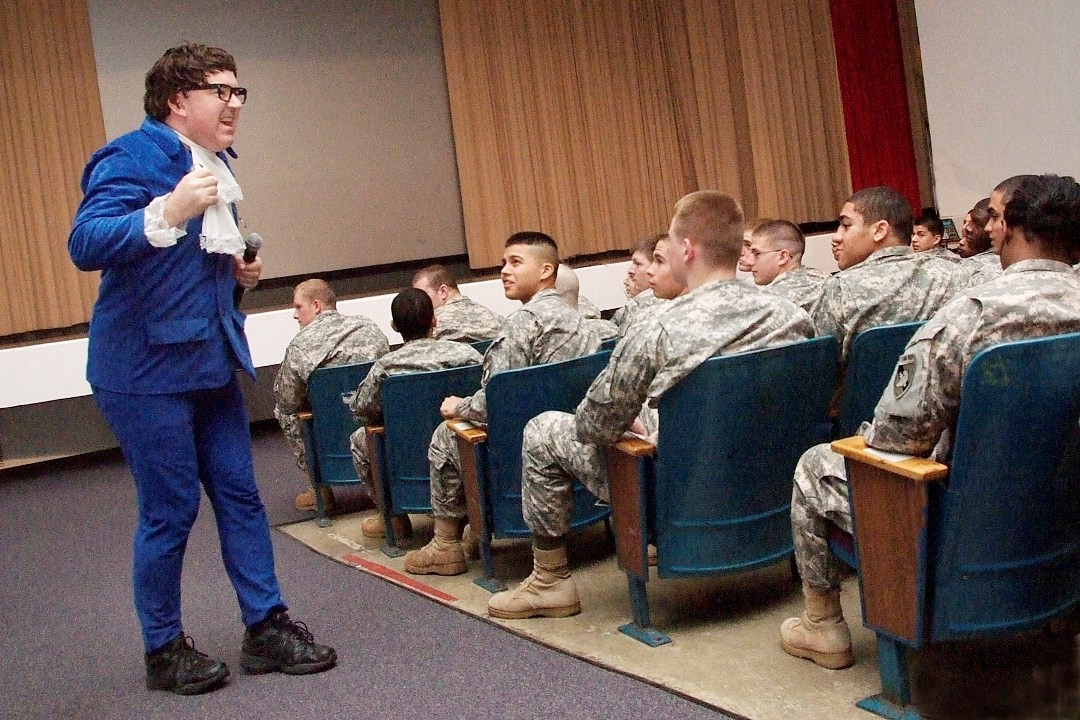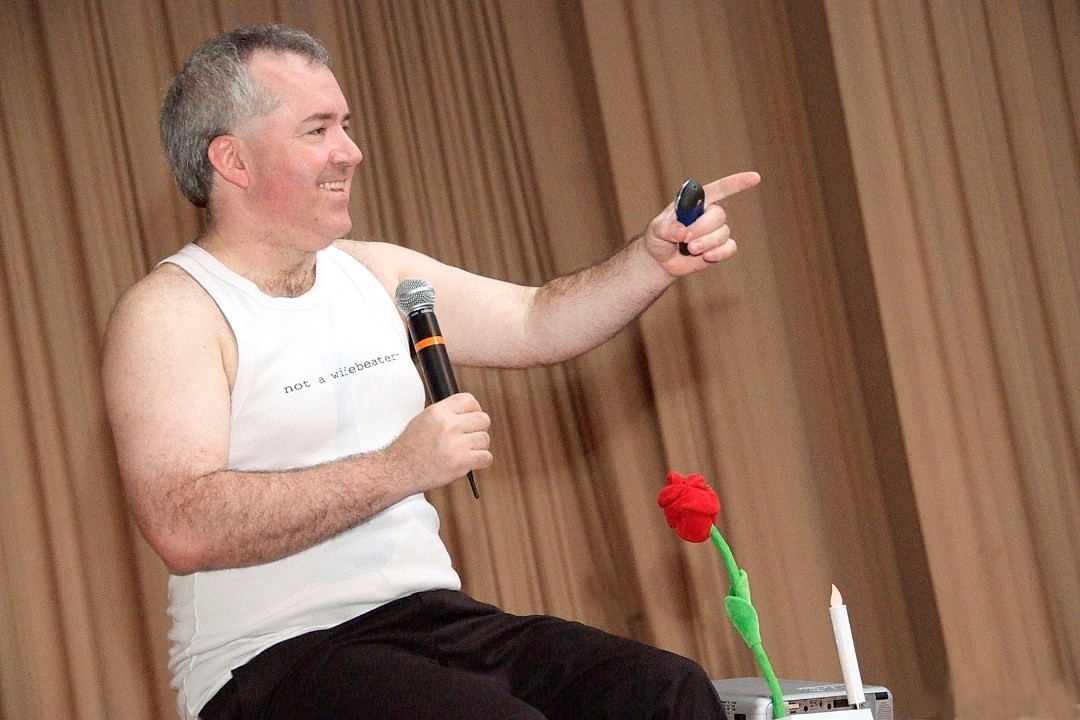FORT MONMOUTH, N.J. -- When does the word "no" not really mean "no"'
In the mind of a young man who believes his role is to be aggressive when pursuing women, an actual "no" is often perceived to be a code word in a game that translates into "try harder."
Such "macho" mythology is not only misguided, but could lead to a sexual assault and serious legal consequences for a young man full of illusions about how to relate to women.
The male myth of what "no" really means was just one of the misconceptions described by Ben Atherton-Zeman as part of a presentation called "Voices of Men," a one-man play intended to help end men's violence against women.
Atherton-Zeman's play was a blend of video clips, music, humor and impersonations of movie characters Rocky Balboa, James Bond and Austin Powers.
Sponsored by Army Community Service, the play was presented April 6 at the Expo Theatre. An instructive video clip from the movie "Rocky" showed how the main character was persistent is pursuing and romancing a would-be girlfriend who is nervous and uncomfortable with Rocky's overtures.
On the bottom of the screen, as the movie scene unfolds, was a running tally of how many times "She says 'No'" and "He keeps asking." The final tally was 10 and 13, respectively.
In the movie scene, forms of "no" included changing the subject, body language and speech that clearly showed unease. In his opening remarks, Atherton-Zeman noted that every 12 seconds a woman is abused and every two seconds a woman is raped.
"Our special responsibility as guys is to speak up against violence," he said.
Men need to be open and talk about the problem of abuse of women without being self-righteous or defensive, he added. "I'm convinced that we can change this culture of abusive masculinity."
The presentation was interspersed with video clips of public service announcements with various themes: "If it's against her will, it's against the law" and "Our strength is not for hurting. Men can stop rape."
Among the common myths exposed during the presentation was a belief that rape is a woman's fault if she was drunk or "high" at the time.
However, Atherton-Zeman noted that a woman in that condition may be considered by law to be unable to give consent. Another myth is that rapists are typically strangers who jump out from behind bushes when, in reality, most rape victims know the person who assaulted them.
Any assertion that victims lie about being raped isn't supported by statistics, which show that only two percent of reported rapes turn out to be false.
Atherton-Zeman also punctured the myth that, when a couple starts kissing and getting aroused, a "point of no return" is reached whereby the male can't stop escalating the encounter.
"In reality, we choose when and why to stop," he said. During his presentation, Atherton-Zeman also noted that abuse of women isn't limited to physical violence, but extends to such emotional abuse as constantly using words like "ugly", "stupid", "lazy" or "bad mother".
Why would a woman stay in an abusive relationship'
Atherton-Zeman said women may be threatened, such as being told that she or her children will be killed. A man may threaten to hurt himself if a woman leaves. Or a woman may be in love. She wants the abuse to end, not the relationship.
Yet Atherton-Zeman said there is a fundamental problem with asking why a woman stays in a relationship. "Questions like that blame the victims," he said. "We should be asking what we can do as a community to hold men accountable for the use of violence."




Social Sharing